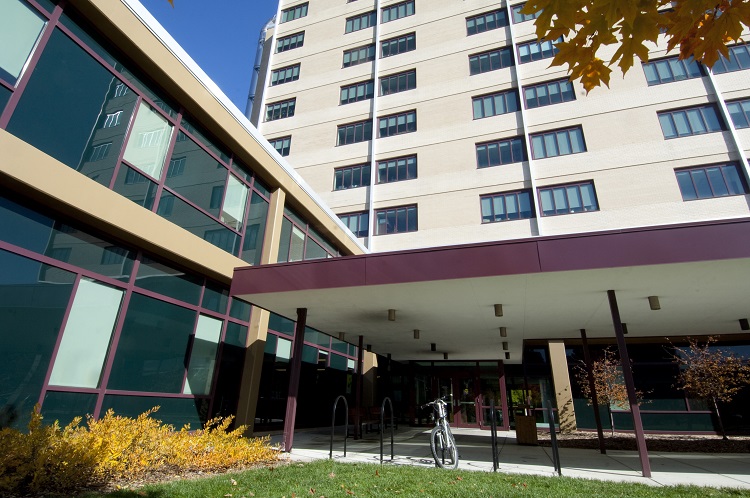
UNL's School of Natural Resources is hosting its inaugural Elevator Speech Contest at 7 p.m., April 17 in the Hardin Hall auditorium (room 107). Hardin Hall is located at the corner of 33rd and Holdrege Streets on UNL's East Campus.
Students will present on their research in three minutes or less and vie for cash prizes. The event is free and open to the public, and is held in conjunction with SNR's Graduate Student Association Poster Symposium, which will precede the contest at 6 p.m. Research posters will be displayed in the Hardin Hall first floor lobby for the public to cast votes on.
"One of the great challenges in science is getting our message out to the greater public," said John Carroll, SNR director. "Essentially the purpose of the contest is to allow the students to articulate their work in a setting that more represents their interaction with non-scientists, like when someone asks about their work at a party or they are interviewed by the press."
Elevator speech judges include: Mark Brohman, executive director of the Nebraska Environmental Trust; Rick Edwards, director of UNL's Center for Great Plains Studies; and Julie Thomas, UNL professor of teaching, learning & teacher education.
In addition to the three-minute time limit, students are allowed only one PowerPoint slide as a visual aid.
"I am very much looking forward to seeing how what seem like rather restrictive rules bring out the creativity of our students," Carroll said.
Johnica Morrow, applied ecology doctoral student, said that the contest will challenge her to simplify the language she uses when describing her research.
"My dissertation is essentially a survey for a number of protozoan parasites that may have existed in a population of people who lived in the Rio Zape Valley of Mexico between 1,200 and 1,400 years ago," Morrow said. "I think the most challenging part of preparing for this competition has been trying to put into words – very few words – the complexity of my work."
The contest consists of three categories: undergraduate, master's and doctoral students. In each category, the cash prizes are $1000, $300 and $200 for first, second and third place, respectively.
"Getting any money at all from this competition could buy one of the test kits I will need to conduct my research," Morrow said.
For Maggi Sliwinski, applied ecology doctoral student, preparing for the contest means staying focused on the essence of her research, which examines how grazing systems affect heterogeneity and bird communities across Nebraska Sandhills landscapes.
"Condensing these ideas into a three-minute speech has really forced me to focus on what's most important about my ideas and what might be clouding the issues unnecessarily," she said. "I'm participating in the contest because it gives me an opportunity to organize my thoughts in a way that makes sense to people outside my field."
Following the contest's preliminary rounds that took place April 14, the finalists who will compete on April 17 have been announced as:
Undergraduate
Victoria Simonsen
Carolyn Reiland-Smith
Dylan Tegtmeier
Master's
JoLeisa Cramer
Christa Webber
Emma Brinley Buckley
Ph.D.
Hannah Birge
Daniel Uden
Katja Koehler-Cole
— Mekita Rivas, Natural Resources